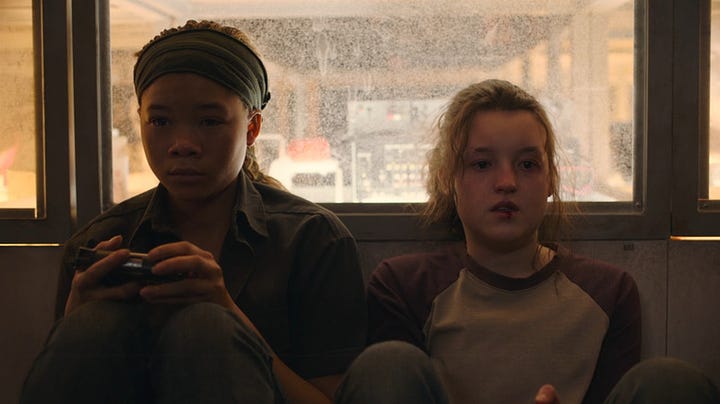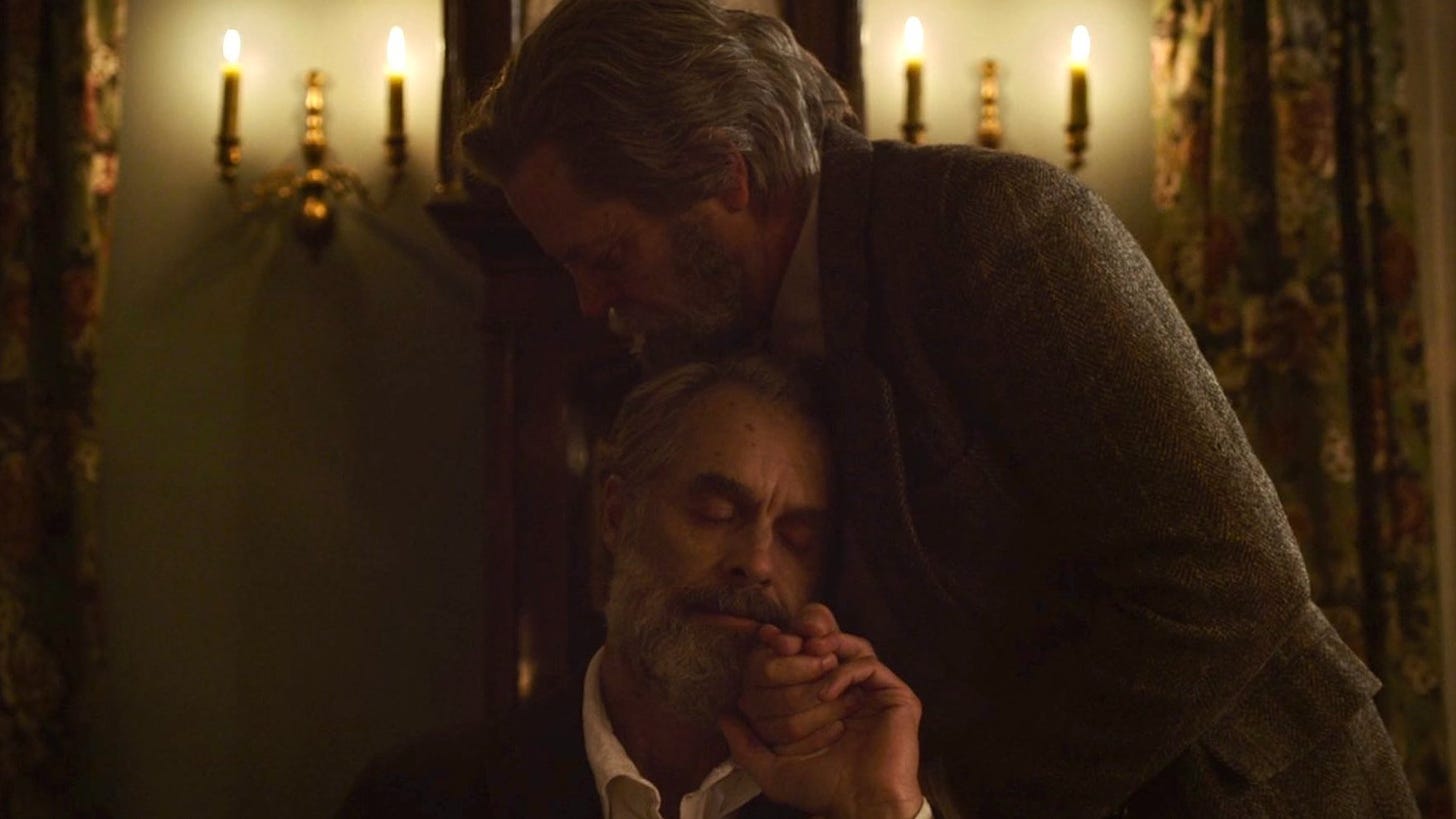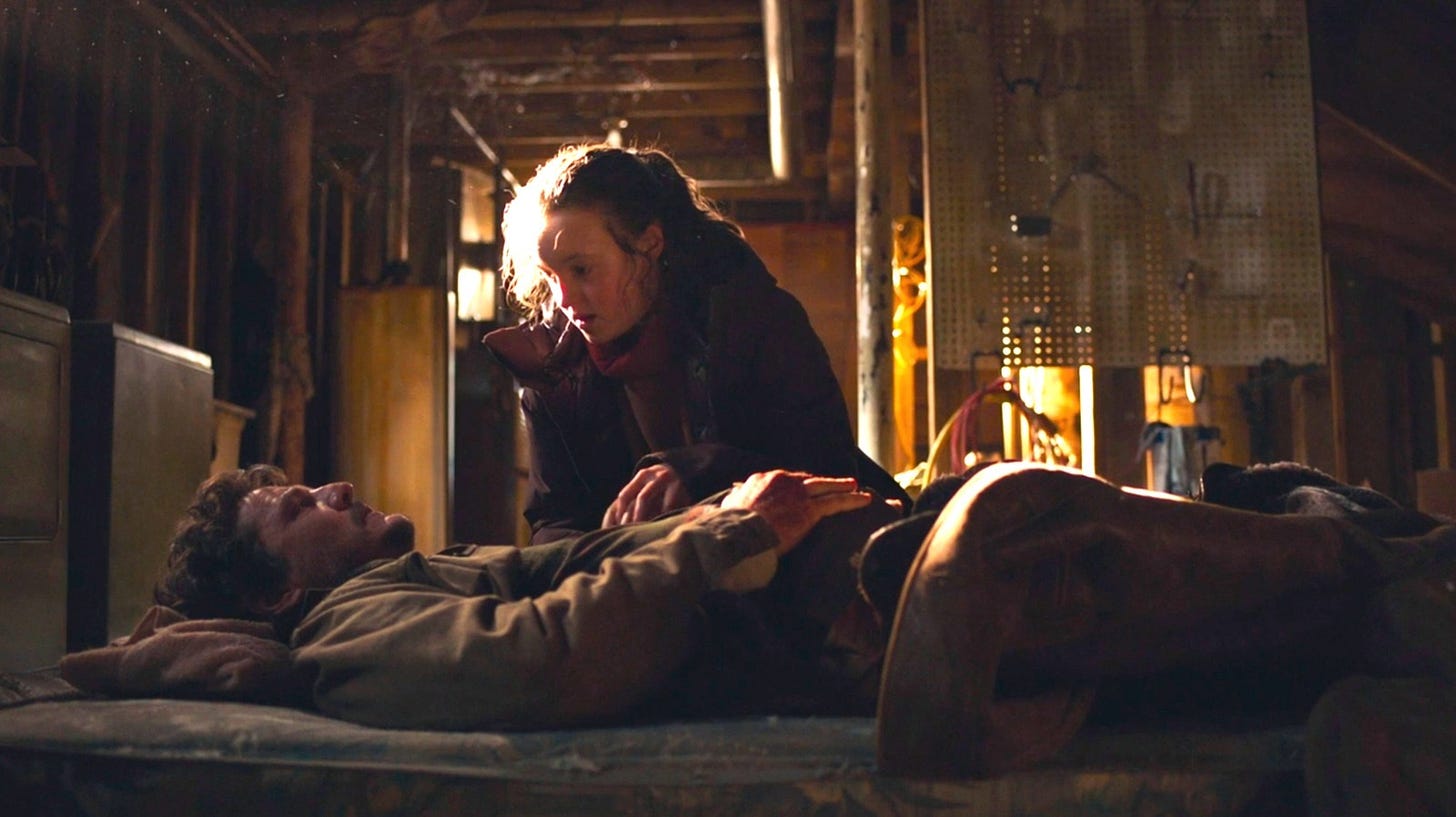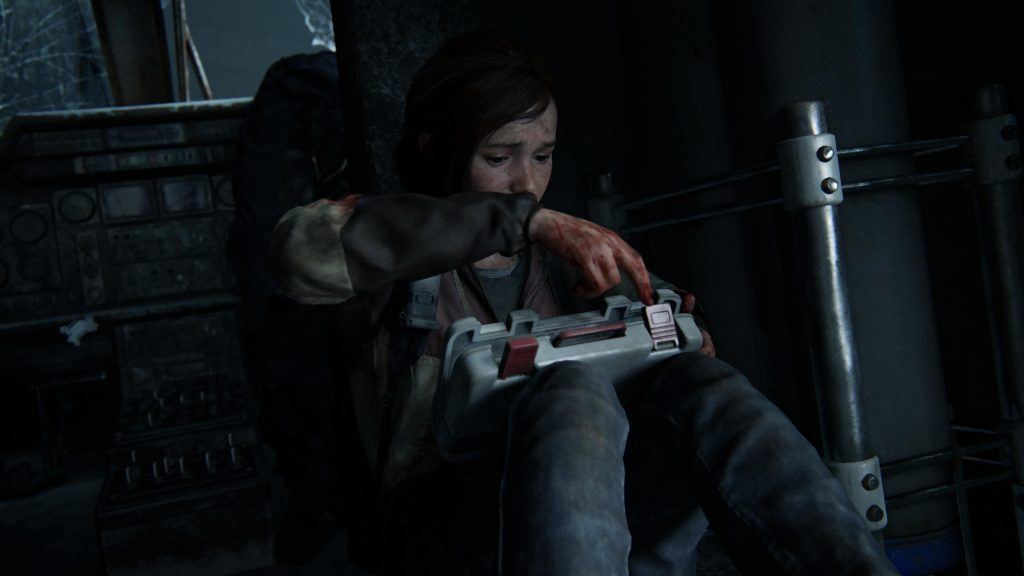The Last of Us DLC does narrative better
Although Episode 7: Left Behind of TLOU is emotional, something is missing


Spoiler alert: discussion of The Last of Us Part I and Part II games, The Last of Us: Left Behind DLC and HBO’s The Last of Us episodes 3, 6 and 7. Read at your discretion.
Dear hopeful reader,
You should know that I’m a big fan of The Last of Us games. You should also know that I’m a spoiled fan of survival horror games. Meaning, I have certain expectations in how a particular horror video game should be adapted. Meaning, I may never be happy with any adaptation. Meaning, I should have first watched the HBO show then played the games. (Just how I played TLOU Part II first and wasn’t as horrified by Joel’s demise as other fans, not that I wasn’t heartbroken. Yes, I can be backwards sometimes.) Well, too late!
None of this is to say I haven’t been enjoying The Last of Us show—more like crying my heart out every episode and impatiently awaiting the next. That’s how much of a fan I am, how invested I’ve been. Objectively each episode is excellent, from the acting to the cinematography, to the production, the music, and the care given to the source material. However, some instances or episodes of the show gave me pause. And I must confess that the main game and DLC do narrative much better, in my subjective opinion. I’m sorry, but also, I’m not!
Before I delve into my quasi-analysis of the show’s episode 7 and the game’s DLC, I want to declare my appreciation, awe, and admiration of the entirety of episode 3 and the cabin scene in episode 6, which provide original-content moments and tell us a bit more about the world of TLOU and how different people endure and survive in it.
Episode 3 titled “Long, Long Time” reimagines a relationship between two mysterious characters, Bill and Frank. In the first game, Ellie and Joel only get to meet Bill. And Frank is already dead, we soon discover. The source material gives us little background on these two elusive fellows, aside from their love turning to hate for one another.
In contrast, the show’s third episode originally retells their meeting, their falling in love, their decades together, their joint passing. The end is tragic. Yet, there are glimmers of love, hope, and light while they’re still together and alive. In a harsh reality that can take away anything good too soon, we need moments of beauty, tenderness, and contentment like these to keep us going for our loved ones, for our purpose, for life itself.
Personally, what makes this episode’s story especially effective is that it’s told from almost a clean canvas due to the lack of information about Bill and Frank. It’s the novelty, really, that’s compelling. And maybe the alternate reality aspect. In this cinematic adaptation, you could imagine Bill, a hardened survivalist who trusts no one, softening up to someone else and trusting them. You could even imagine him delighting in the pure act of picking a strawberry and savoring it, despite the treacherous world outside. You do, and you’re engrossed. Or at least that was the case for me.
Also read: Maybe someday we’ll get another Resident Evil adaptation


In the beginning of the episode 6 “Kin,” the viewers are introduced to two never-before-seen characters, Florence and Marlon. Ellie and Joel stumble upon their cabin while traveling to Jackson, Wyoming, to seek out Joel’s brother, Tommy. They learn this charming, sarcastic duo have been hiding from humans well before Joel was even born. Naturally, they may not know who FEDRA is, let alone about the “firefly people” as Florence endearingly calls them.
The few minutes we spend time with the not-by-Florence’s-choice recluse couple we learn quite a bit about their view on life. It’s apparent in their humorous banter among each other, in their welcoming invitation to partake in the wisecracks, in their peaceful demeanor even when Joel’s pointing a gun at them. They’ve lived a life, and they’re wise and untroubled by what seems like everything.
That brief moment provides the audience an impactful character study of and contrast between the four protagonists, being all together in a contained space. It’s my most beloved scene in the whole episode because it gives us original content and characters. It shows us what life is like for various individuals; it’s not all the same. And that’s refreshing and illuminating.
I agree with Polygon, Florence and Marlon should have their own spin-off. Maybe a sitcom? Imagine they’re fighting off a clicker while nonchalantly talking about how Marlon almost successfully hunted a deer, but it heard his fart and ran away. It can be like The Last of Us meets Uncharted kind of show. Let’s go!
Now on to episode 7 “Left Behind.” Ellie, Joel, and their horse hide themselves in a garage of a deserted home. As shown at the end of the episode prior, Joel was injured by a raider at the UEC campus. Lying on the garage floor, blood spilling from his gut wound, he prompts Ellie to leave him, to go back to Tommy. Frantically, she tells him to shut up. A lot of confused emotions are shared between them as she covers him with his coat. She hastens upstairs and, before opening the door, hesitates. We’re then thrown into a flashback.
The majority of the episode takes place in that flashback. We’re shown an instance of Ellie getting bullied by a taller girl during gym at the FEDRA school. Ellie punches her and gets a black eye herself. Later at the commander’s office, the captain persuades her to behave so she can someday be a well-respected officer governing the people like her bully and leading a good life. At night, she’s startled by an intruder in her room. It’s her best friend Riley who visits her after being missing awhile, apparently becoming a part of the Fireflies, an opposing force to FEDRA.
Ellie is disconcerted by the news, but Riley tells her she’ll explain everything while she gives her the best night of her life. The two travel to a mall that was claimed to be infested and thus boarded up. But it’s not. It was inadvertently powered up as FEDRA brought electricity back to an apartment close by. Riley shows Ellie the four wonders of the mall—not counting the escalator. They have a blast full of childlike awe and adventure.
They decide to stay together after all. But alas, their time with each other is shortened as they’re both bitten by an infected. Distressed, they sit side by side. Holding hands, they wait it out until they can’t anymore. We’re then flashed back to Ellie in the present day, assuming the worst: Riley is no longer with her. Not wanting to lose anyone else who means dear to her, Ellie searches for something to patch up Joel. Finding a thread and needle, she runs back to him. Like she held Riley’s hand, she holds his, stitching him up.
Also read: Best TV shows on Apple TV+ with immersive storytelling
Episode 7 is emotional, no doubt. We’re shown a glimpse of Ellie’s recent past and how it traumatized and shaped her. She had a best friend whom she also loved romantically. And in a span of just a few hours, her hopes, dreams, and love died. She would no longer have anyone to love and care about in her life. Until Joel.
In the time they spent together, despite their conflicts and challenges, he became a father figure to her—a protector and a friend. She wouldn’t want anyone else on her journey, not even Tommy who is the closest person to Joel. The last thing she would want is to lose him. And as damaged as Joel is after losing his little girl decades ago, he opened up to Ellie and—dare I say—even loves and cares for her in his own hard-shell way.
All that is poignantly portrayed in the adaptation. The fear of loss and loneliness. The helplessness and hopelessness of a dire situation. The love and care for one another. The determination to endure and survive together, after all. But something isn’t quite right—missing.
In the DLC The Last of Us: Left Behind, Ellie brings almost unconscious Joel to a mall, where she searches for a medical kit to mend him. As a matter of course, this triggers a flashback of her last moments with Riley at another mall. The DLC switches between the past and present, giving equal weight to both timelines and Ellie—particularly her character development.
In the show, however, the majority of the episode is spent on Ellie with Riley at the mall. Only the beginning and ending minutes give attention to Ellie and Joel in the house. The way the flashback transition is delivered feels rather random, because Ellie isn’t near the trauma memories. Understandably, sometimes anything can trigger an emotional response in a real-life situation. But in an artistic medium, the audience should be seamlessly nudged into it for complete immersion. That’s why the DLC does the narrative better. The mall sequence from the present mirrors the events from Ellie’s past.
Likewise in the DLC, we get to see—or rather play—Ellie painstakingly searching for the medical kit in the mall that’s not only infested with the infected, but also the human enemies who wounded Joel back at the university. She starts with few resources to defend herself and fight her way through and back to him. Even when she’s more equipped later on, she’s still a small girl and weaker compared to her human and inhuman foes, forcing her to think critically about her offensive tactics. The urgency and danger of the situation are felt deeply and acutely just as much as the need to return to the one she loves and doesn’t want to lose.
I just didn’t feel the gravity as much in episode 7. In fact, episode 6 struggles with the same weakness. In the first game, Chapter 9: “The University,” Joel has to go through runners, clickers, a bloater, and looters to ensure Ellie’s safety and find out where the Fireflies went to, before he’s incapacitated. Ellie then fights off the looters to protect him so they can escape together. There’s mutual instinct and impetus to fight for and protect one another in an unpredictable, threatening world. They’re thrown into situations that test their will, and in part, it’s how they realize how important they are to each other.
Meanwhile in the sixth episode of the adaptation, the danger is taken away in the university sequence. Only a few raiders attack Joel and Ellie at the end. Thus the weight of the peripeties aren’t translated as well in the show. Other episodes lack danger scenes where there should be to depict how the world of TLOU can be hazardous, uncertain, and inconstant. How a person can die one day, and how foolish it is to get attached to anyone. Yet, Ellie and Joel do. And they would do anything for each other, to witness another day together.
The DLC can be finished in two hours and a half or less. (And some of that time is likely spent being afraid to move Ellie because of the scary clickers ahead. No? Oh, it must just be me.) It’s not that long. That means, the show runners could have taken a bit more time with the seventh episode to also include events from the present. Perhaps instead of finding a thread and needle upstairs, Ellie would have had to search for a wound care kit in neighboring houses—where the infected could be lurking about, and/or not-so-friendly people. This would have added more magnitude to the circumstance she’s in, making it one of the most pivotal moments for her personal growth and the relationship she has with Joel.
But these are just my not-so-objective, maybe-too-invested thoughts. I would love to know yours. If you have been watching The Last of Us, what do you think of it? Do you feel it does justice to the game as an adaptation?
Yours hopefully,
Nadia








❤️❤️